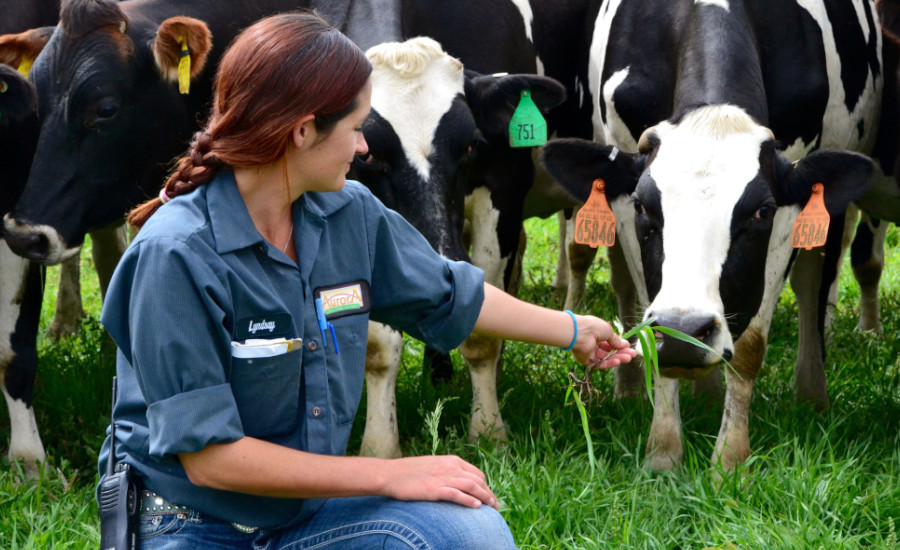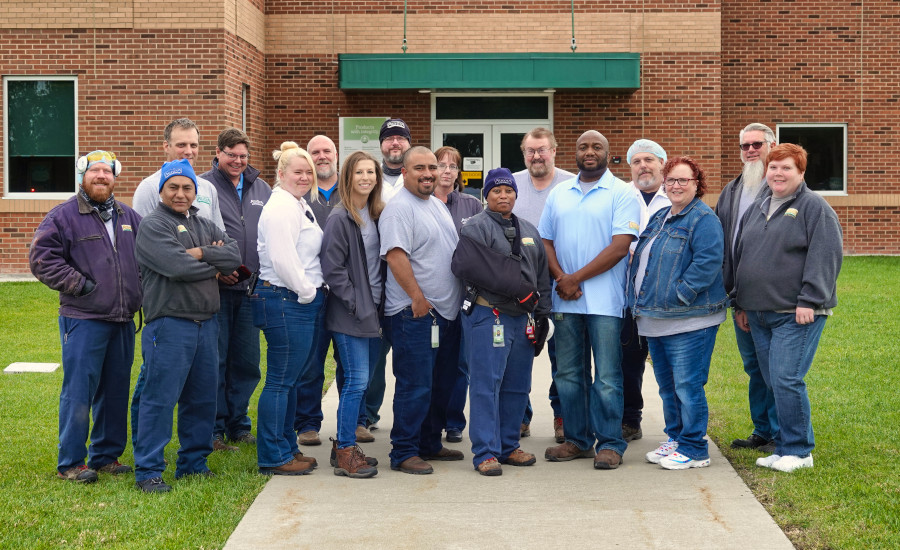Placing a significant focus on diversity, equity, and inclusion (DEI) can provide many benefits for a business. In fact, Forbes cited 15 ways DEI can help a business, including the likelihood diverse companies reach financial goals; the likelihood employees feel more safe, respected, and connected; diverse teams innovate faster; and a diverse, inclusive environment better retains employees who feel a sense of belonging.
To zero on this topic and find how dairy companies can implement DEI plans and ways the industry can further advance this movement, Dairy Foods is devoting its first major feature on the topic. We reached out to many experts in the industry, several of whom serve on the International Dairy Foods Association (IDFA) Dairy Diversity Coalition, whose goal is to:
- Share best practices to build inclusive cultures through information sharing and transparency.
- Empower industry collaboration to increase diversity, equity, and inclusion in the dairy industry.
- Build a workforce that looks like, and is reflective of, the communities and consumers we serve.
No matter if a dairy processor has a DEI strategy or not, we have everyone covered. To better understand this all-important topic, we first looked at the ways our participants have ensured DEI in the workplace.
Boulder, Colo.-based Aurora Organic Dairy (AOD) developed an employer value proposition several years ago that embeds diversity in the employee experience it wants to model. Its goal is to provide a diverse, connected workplace community where employees collaborate to produce the highest quality organic dairy products that customers love.

“Diversity is measured in several ways at our company. More than 60% of our employees identify as non-white. We track the number of women and people of color in supervisory and management positions. This includes those who are promoted into these positions as well as new hires. Over the past several years, we saw an increase in the number of women holding higher-level positions, which is reflective of our investment in training and recruiting efforts. We also review turnover rates to identify trends that may be evident in our female and POC (People of Color) populations, and are able to address issues when they occur,” Robin Kane, chief people officer for AOD, tells Dairy Foods.
To ensure all employees are heard, company-wide communications, including newsletters, policies, surveys, and training, are translated into Spanish, Kane continues. Also, for the past two years, several of AOD’s professional women participate in women’s mentoring groups hosted by the IDFA. “We are committed to paying employees commensurate with their experience and skills, and review pay regularly with a lens toward DEI equity,” Kane notes. “Aurora Organic Dairy posts salary ranges for all positions.”
Montreal, Quebec-based Saputo Inc.’s DEI efforts began in 2015 when it implemented a board of directors’ diversity policy shortly after achieving gender parity at the board level. In 2017, it published its first Saputo Diversity Policy. In 2018, it created its Global Diversity, Equity, and Inclusion Council. A year later, it hosted employee focus groups across all its divisions.
Saputo also supports Catalyst, a global non-profit dedicated to advancing gender equity, and is an active participant in the Catalyst MARC (Men Advocating for Real Change) program and conference.
In addition, Saputo in 2020 signed the Catalyst CEO Champions for Change Pledge, partners with Women in Foodservice Forum on growth and development opportunities for high-potential women; has enhanced parental leave programs across all division; and accelerated successor readiness through gender-based leadership programs.
Meanwhile, in Tillamook, Ore., Tillamook County Creamery Association (TCCA), takes an inclusion-centered approach. “At TCCA we have created an intentional approach to our inclusion and diversity efforts. We recognized the need to not just speak about DEI but to commit to our own learning, and to create measurable and tangible outcomes. In business, you get what you measure, so we developed an inclusion and diversity framework and comprehensive work plan that sets tangible goals for TCCA,” relays Sheila Murty, executive vice president of People & Culture, TCCA. “Since implementing this framework, TCCA has more than doubled the number of leaders of color and increased the percentage of women in director-level roles by 25%.”
Amanda B. Chambers, vice president, Learning and Culture, Broomfield, Colo.-based Danone North America, adds DEI is central to its business and people strategies and enables it to live its Danone values of Humanism, Openness, Proximity, and Enthusiasm (HOPE).
“Our approach to DEI is organized around a four-pillar framework: People, Market, Community, and Advocacy, that has a central place in the company’s overall business strategy,” Chambers says. “Within these four pillars, we develop our people, work to attract and retain the best diverse talent, and grow our business in innovative ways. We provide DEI education for all Danoners, nurture the growth and impact of our eight Employee Resource Groups, and create opportunities for Danoners to volunteer in the communities in which we live.”
Additionally, Danone North America advocates for social justice and equality outside its workplace walls by supporting legislative efforts and policy reforms that provide equal access to wealth and opportunity, and provide equal rights to all. A recent example is its participation as an early signatory of the Human Rights Campaign’s Respect for Marriage Act letter to the U.S. Senate, legislation that was advanced to the U.S. House of Representatives.
Looking at DEI from a trade group perspective, Washington, D.C.-based IDFA’s primary goal is to listen to and respond to what’s on the minds of its members, and it knows that diversity, equity, and inclusion is a top priority for them. This is why IDFA created a People Strategy as part of the aforementioned Dairy Diversity Coalition.

“Before IDFA, I made this a top priority in my own workplaces and for many clients I’ve worked with,” stresses Mia Mulrennan, Psy.D., chief people officer at IDFA. “As one example, when I was chief talent officer at Sun Country Airlines, diversity increased by over 70% due to specific initiatives and aligning the growth goals of the company with hiring diverse talent. I began at the top, ensuring executive-level buy-in that our internal talent needed to better reflect and therefore serve our customers.”
Washington, D.C.-based MilkPEP CEO Yin Woon Rani is a founding member of IDFA Diversity Coaltion, as well as BRIDGE, a new trade association for chief diversity officers and their allies. “MilkPEP itself is 90% women and we prioritize working with partners and agencies that bring a diverse perspective as it creates the strongest and most meaningful work to appeal to the increasingly diverse consumer marketplace. I’m also proud to be the third female CEO at MilkPEP,” Rani states.
A different perspective
All of our respondents agree DEI has helped provide their company or organization with a different perspective, creating better vendor relationships, improving teamwork, and/or enhancing the talent pool.
“Our focus on DEI continues to provide us with opportunities to expand our talent pool and have a positive impact on employee retention and engagement. Building on our DEI initiatives and efforts, we are seeing more and more of our leaders begin to adopt inclusive leadership practices. This enables them to consider diverse perspectives and leverage the full strength of their teams to make well-rounded decisions,” a Saputo spokesperson notes.
To Saputo, DEI is also about fostering honest and open conversations and creating a safe space so people can learn from each other and ensure everyone feels comfortable bringing their whole selves to work. “In this regard, our leaders are once again leading the way by sharing their personal stories as well as their expectations about the diverse, inclusive, and equitable work environment we aim to continue creating for our people,” the spokesperson continues.
Danone’s focus on DEI has been a “win-win-win” in that it is the right thing for its business, people, and its customers and consumers, Chambers asserts. “Our four-pillar framework grounds our decision-making, improves our relationships with vendors, and positively informs our ways of working and innovation. It deepens our talent pool and unlocks perspectives that enrich our products and partnerships with customers by listening to what diverse consumers are seeking from the marketplace. Expansion of supplier diversity strategies have both helped us unlock meaningful business opportunity, but just as importantly, helped us live up to our own dual purpose of achieving business success with meaningful social progress in our communities.”
MilkPEP’s Rani likes to say that she is “talent obsessed.” “When you don’t have the natural networks in place, you have to work so much harder and be so much better, so I try my best to support professionals of different backgrounds. I strive to create a culture of inclusion and diversity. I value diversity in opinions as a strength, particularly when you harness it correctly. Diverse teams that can debate and come to a decision come up with better and more interesting solutions and outcomes in my opinion. It’s important to have both diversity of thought and diversity of thinkers.”
Regardless of gender, ethnicity or background, IDFA’s level of expertise as subject matter experts surpasses some Fortune 500 companies Mulrennan has worked for. “And I think having diversity helps us to work and collaborate more effectively with our members. Research certainly backs up the fact that diverse viewpoints help to arrive at optimal solutions. And IDFA does that with our members every day. When our members see and experience IDFA putting DEI at the center of its own strategies, programming, and internal function, it sends a strong message about our industry’s commitment and leadership.”

Simply stated, TCCA makes better decisions and build stronger teams when it invites diverse perspectives, thoughts, backgrounds, and cultures into its work. It also creates a more fulfilling and enriching experience for employees when they have an opportunity to contribute, feel valued, and bring their authentic selves to work, Murty stresses.
“This inclusion and diversity work has given us a clear competitive advantage in our business. Since we’ve formally implemented our inclusion and diversity framework, TCCA has grown into a $1 billion company and one of the fastest-growing cross-category, mid-size brands in the U.S. today. …Today, one in four American households purchase Tillamook.”
Forging growth
A DEI strategy can also help a company grow and positively impact the financial bottom line.
Danone has established technology programs and initiatives that elevate the capabilities of its farming partners, bringing them into the future with it and strengthening its food sourcing relationships, which in turn leads the company to broader scale and growth, Chambers maintains.
AOD partnered with the IDFA to produce recruiting videos for frontline workers, such as production operator and lab technician positions, with an emphasis on workforce diversity. The videos are posted on its careers page and have helped to increase traffic to AOD’s website.
“We also invest in organizations that are focused on increasing diversity in the organic agriculture sector,” Kane mentions. “For example, we committed funds for 2023 to expand diversity through a financial contribution to the OTA Diversity Fund, which was established to support inclusivity and diversity in the organic industry for Black, Indigenous and POC-owned businesses. Both these examples serve to enhance our community and business profile and support our growth.”
Saputo adds its commitment to DEI helps it to think differently about how it makes decisions throughout the entire employee lifecycle. It has integrated objective criteria in its recruitment and succession planning processes to expand its talent pool and provide equitable opportunities to candidates interested in joining Saputo.

“Another way we promote DEI in the workplace is by celebrating global days of significance, such as International Women’s Day, World Day for Cultural Diversity for Dialogue and Development, Black History Month or International Day of Persons with Disabilities,” a Saputo spokesperson states. “This allows us to bring awareness on the different aspects of DEI and to empower our employees to take an active role in creating an inclusive work environment in which they can all thrive.”
Tetra Pak knows that companies that prioritize DEI are more successful and attract and retain top talent, all while creating a more enjoyable workplace experience where differences are celebrated, notes Jennifer Montgomery, head of HR Country Services, U.S. and Canada, for the company, whose North American headquarters is located in Denton, Texas. “Further, it is important for customers and consumers to see their own values reflected in the products and services they buy. DEI can help us to better connect with our varied audiences for improved harmony within the communities where we work and live. We believe having this perspective will help us to grow and become a better organization overall.”
For those with no DEI strategy in place
For dairy processors who do not have a DEI strategy in place, the process can seem daunting. Where do you start?
Tetra Pak is a great example of a company that recently began its DEI journey, proving it is definitely not too late to begin the process. In the past year, it began working closely with a third-party consultant to perform a DNA assessment of its employee population within the United States and Canada to learn where it currently stands within this journey and how best to move forward, Montgomery states.
“Tetra Pak is inherently a very culturally diverse company, but we realize there is still work to do. So, in addition to our Foundations of DEI training rolled out to all employees [in the fourth quarter of 2022], we will also be including a cultural diversity training module [this quarter] to drive our focus on inclusion. Tetra Pak is continuing to build relationships with industry groups that focus on diversity, such as the Society of Women Engineers,” Montgomery says.
For anyone beginning the same DEI journey, Montgomery stresses it is important to find a consultant who can help a company wherever it is on a DEI journey. “It’s been very important that we not jump into this without analysis of where we are and where we want to be in the future. A third-party organization that is well-versed in developing this type of strategy can help to create a roadmap to get you there. There needs to be substance behind the actions taken in order to enact meaningful and sustainable change.”
Kane adds that the first step is to link DEI to the overall EVP (employer value proposition), so that it is embedded in the core employee experience. “Listening to the workplace experiences of women and POC is another important step in identifying areas that the company should invest in to create an effective DEI strategy. Finally, putting measurements in place to see the progress being made and identify gaps is key to incremental improvement in reaching DEI goals.”
Murty recommends taking the following steps:
- It is not enough to talk about it. We have to commit and act.
- It starts with a commitment from the top. Assess your opportunities and gaps, and identify why it matters to your particular business and to your culture.
- Communicate your intentional commitment, action, and progress often.
- Engage your employees and make the investment to support your employees’ learning to deepen their collective awareness and equip them to navigate differences.
- Develop inclusive leaders. We believe leaders are crucial in a DEI strategy and at TCCA, we have prioritized equipping our leaders with ongoing education and development opportunities so they can foster an inclusive culture and model behavior.
- Be accountable for your efforts and measure your progress.
Begin close to home by listening to employees, advises Danone’s Chambers. In particular, actively hear those who represent a broad range of abilities, backgrounds, and experiences. Invite constructive criticism and feedback.
“Good places to examine internally may include recruiting, hiring and promotion practices, procurement processes, employee support systems, and stakeholder partnerships,” Chambers recommends. “Seek out the wealth of information and resources that exist to find the right path for your specific culture, your people, your business. It’s a different journey — but a fulfilling one — for every company.”
LET'S TALK DAIRY
Dairy Management Inc. (DMI)
For more about DEI, please listen to Episode 23 of the "Let's Talk Dairy" podcast with Michelle Purvis, senior vice president of human resources at Dairy Management Inc.
Mulrennan adds she cannot stress enough to start with the basics. “Educate. Don’t assume people understand all the issues and that people feel fully comfortable talking about DEI issues just because they are so prominent right now.”
DEI must be made a priority and connect it to your core values and operating processes, MilkPEP’s Rani asserts. “Carve out dedicated spaces for diverse voices to be heard, so they can openly and without judgment speak their minds, share their opinions, and provide ideas. Take these ideas seriously and prioritize diverse talent during the hiring process. Measure and track accountable results like you would any other initiative that matters. Find and compensate DEI experts to bring their expertise to the table to accelerate change and avoid the many pitfalls in the space.”
Power in numbers
No matter if a dairy processor has a DEI strategy in place or not, they can take comfort in the fact they are not alone.
In addition, DEI is a crucial topic for the dairy industry itself beyond any one company. What specifically can the dairy industry do to further the DEI movement?
The dairy industry can continue to strive to build a workforce that looks like, and is reflective of, the communities and consumers we serve, responds, TCCA’s Murty. “By continuing to create inclusive workplaces, the dairy industry can create conditions that invite people with different lived experiences and backgrounds to join our industry. By creating spaces that enable everyone to feel that they have a sense of belonging in our industry, we will attract the best talents and contributions to make dairy thrive.”
On an individual level, it is important for company leadership to understand that you are always sourcing for talent and representing the dairy industry everywhere you go, IDFA’s Mulrennan maintains. “Being out in your community, being at a neighborhood gathering, or at a social event of any type, means you are in and among diversity and there are always organic opportunities to talk about what a great industry this is to work in.”
On an organizational level, it is important to embrace a growth mindset and think outside of your past parameters. Understand that the people you’re recruiting are doing their homework: they visit your website and Google you and your company, study your leadership, review what news was written about your company, and research your company’s ethics and mission.
“Today, people want to know there is purpose to their work,” Mulrennan concludes. “Therefore, focus on what matters to the company and its culture beyond what you’ve traditionally had as markers for success in the past. For example, there is purpose and meaning being part of dairy: being in a food industry that provides wholesome, nutritious, and affordable products to people everywhere and also brings people joy and happiness. There is tremendous opportunity to make a difference.”





